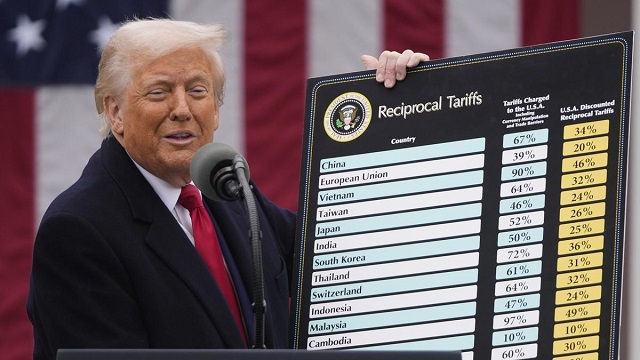Trump’s ‘Reciprocal’ Tariffs on South Korea and Other Countries Now in Effect
The ‘reciprocal’ tariffs imposed by former President Donald Trump on South Korea and several other countries are now in effect. These tariffs are part of Trump’s strategy to push for better trade deals and reduce trade imbalances between the U.S. and other nations.
The new tariffs mean that the U.S. will charge higher taxes on goods imported from these countries, especially if they place similar tariffs on U.S. products.
The goal of these tariffs is to make foreign countries treat American goods more fairly in their markets. If a country imposes high tariffs on U.S. products, the U.S. government responds by placing equal tariffs on products from that country. This approach is known as “reciprocity” and is meant to encourage countries to lower their tariffs, allowing U.S. businesses to sell their products more easily abroad.
South Korea, along with other nations, is impacted by these new measures. The U.S. government hopes that by imposing higher tariffs, it can pressure these countries to change their trade practices and offer better deals for American exports. South Korea, for example, has been one of the countries that faced tariffs on steel and other goods as part of this policy.
The tariffs are not limited to South Korea. Other countries, including China, Japan, and European nations, are also affected by Trump’s trade strategy. The move has sparked mixed reactions. While some American businesses and workers welcome the idea of protecting U.S. industries from unfair competition, others argue that these tariffs could lead to higher prices for consumers and disrupt supply chains.
The impact of these tariffs is still unfolding. As countries respond and adjust to the changes, it will be important to see how these measures affect global trade and U.S. businesses in the long run. The Trump administration aimed to reduce trade deficits and protect U.S. jobs, but many experts warn that tariffs could lead to retaliation from other countries.
In conclusion, Trump’s ‘reciprocal’ tariffs are now in full force, affecting trade with South Korea and other nations. While these tariffs aim to level the playing field for U.S. exports, the full effects on global trade remain to be seen.

